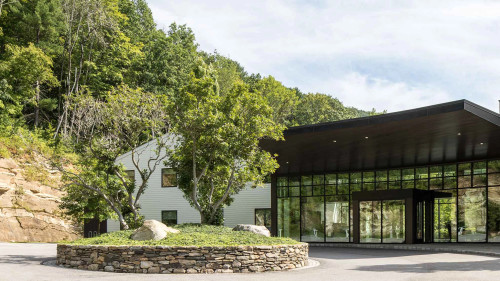






Mountainside Caanan
Verified Center
This provider's information has been quality-checked by Recovery.com's Research Team for accuracy and completeness, including center verification through appropriate third-party organizations.
Treatment Focus
This center treats substance use disorders and co-occurring mental health conditions. Your treatment plan addresses each condition at once with personalized, compassionate care for comprehensive healing.
Primary Level of Care
Offering intensive care with 24/7 monitoring, residential treatment is typically 30 days and can cover multiple levels of care. Length can range from 14 to 90 days typically.
Treatment Focus
This center treats substance use disorders and co-occurring mental health conditions. Your treatment plan addresses each condition at once with personalized, compassionate care for comprehensive healing.
Primary Level of Care
Offering intensive care with 24/7 monitoring, residential treatment is typically 30 days and can cover multiple levels of care. Length can range from 14 to 90 days typically.
Provider's Policy
We work with most private insurances, including Connecticare, Empire BCBS, Harvard Pilgrim, NYSHIP, Optum, Oxford, The Empire Plan, and the list below. We don't take state insurance, Medicare, or Medicaid. Fill out our secure online form to verify insurance. We'll respond within 24 hours.
Mountainside Caanan
Mountainside Caanan
About Mountainside Caanan
Mountainside Treatment Center is a nationally recognized behavioral health network known for its compassionate, best-in-class addiction treatment. For over 25 years, they have empowered individuals to reclaim their lives through a holistic approach that heals the mind, body, and spirit. Guided by their innovative Integrative Model of Care, Mountainside meets clients where they are on their recovery journey and provides personalized treatment every step of the way.
Accredited by the Joint Commission, ASAM, and CARF, Mountainside works with most private insurance plans and offers self-pay options, ensuring accessibility to their exceptional care.
Their comprehensive services include:
- Medically supervised detox
- Residential care
- Extended Care (sober living)
- Partial hospitalization program (PHP)
- Intensive outpatient program (IOP)
- In-person and virtual Outpatient Services
- Adolescent services
- Recovery coaching
- Family services
Mountainside is built on the belief that recovery is possible for everyone. They create a safe, supportive environment where hope and healing can flourish.
Professional and Personalized Treatment
Mountainside Treatment Center’s multidisciplinary team includes addiction psychiatrists, medical doctors, masters-level clinicians, therapists, nursing staff, and wellness professionals, all working collaboratively to provide seamless, compassionate care. Each client receives a personalized treatment plan tailored to their unique needs, goals, and histories. Their integrated approach combines evidence-based clinical therapies—such as individual and group counseling—with holistic practices like acupuncture, adventure therapy, and wellness services. By addressing both the physical and psychological aspects of addiction, Mountainside empowers clients to achieve lasting recovery.
Mountainside also offers family services to help loved ones better understand addiction and recovery, fostering a supportive environment that contributes to lasting transformation.
Specialized Programs And Sequential Care
Mountainside Treatment Center’s Bespoke Program is designed for individuals seeking an elevated level of privacy and flexibility during their recovery journey. This exclusive program includes a private suite equipped with high-speed Wi-Fi, a laptop, phone, and tablet to accommodate work needs. Clients in the Bespoke Program receive highly private care, with individual therapy sessions and wellness services brought directly to their suite. For those seeking a more structured treatment experience, Mountainside offers a 35-day residential program that can transition seamlessly into sober living, intensive outpatient (IOP), or outpatient programs. The intensive outpatient program spans seven weeks, providing robust support as clients continue to progress in their recovery.
Expansive Continuum of Care and Convenient Locations
Mountainside clients have access to a full continuum of addiction treatment programs and offerings across the Northeast, including Connecticut, New York, and New Jersey. This expansive network allows clients to transition seamlessly between levels of care, ensuring consistent support at every stage of recovery. Mountainside’s outpatient programs accommodate diverse schedules with morning, evening, weekend, and virtual options, enabling clients to balance their work, family, and personal commitments while receiving the therapy and support they need. This personalized and flexible approach ensures that clients have access to high-quality care whenever and wherever they need it.
A Haven for Healing
Mountainside’s primary location rests in the serene Berkshire Mountains in Canaan, Connecticut. The expansive 200+ acre property provides a peaceful setting designed to support healing and transformation. Each single and double room is thoughtfully designed with the client’s recovery in mind.
The campus features walking trails, calming streams, waterfalls, and a meditation garden, offering spaces for restoration and connection to nature. Clients also have access to an on-site fitness center, meditation room, volleyball court, and basketball court. On-site chefs prepare meals that emphasize both health and nourishment, ensuring that every detail of the environment supports physical, emotional, and spiritual wellbeing.
Mountainside’s tranquil surroundings and thoughtful amenities come together to provide a sanctuary where clients can focus on their recovery and rediscover their potential.

Highlights from the Center
Highlights
These highlights are provided by and paid for by the center.
Nature Lovers
CARF Accredited
Adolescents
Center Overview
Treatment Focus
This center treats substance use disorders and co-occurring mental health conditions. Your treatment plan addresses each condition at once with personalized, compassionate care for comprehensive healing.
Joint Commission Accredited
The Joint Commission accreditation is a voluntary, objective process that evaluates and accredits healthcare organizations (like treatment centers) based on performance standards designed to improve quality and safety for patients. To be accredited means the treatment center has been found to meet the Commission's standards for quality and safety in patient care.

Insurance Accepted
Cash Pay Rates
Estimated Cash Pay Rate
Center pricing can vary based on program and length of stay. Contact the center for more information. Recovery.com strives for price transparency so you can make an informed decision.
Luxury rehab centers offer a unique blend of luxurious amenities and high-quality treatment. From private suites to gourmet dining, personal trainers to spa treatments, these facilities provide a high level of comfort and discretion.

Meet Your Care Team

Mackenzie Humes
Manager of Nursing
BSN, RN

Jose Perez
Residential Nurse Lead
RN, CARN

Trisha DiBiase
Psychiatric Advanced Practice Registered Nurse
MSN, PMHNP

Meesha Jemison
Psychiatric Advanced Practice Registered Nurse
MSN, APRN, PMHNP-BC

Sara Levine
Psychiatric Mental Health Nurse Practitioner
MS, PMHNP-BC, NP-P
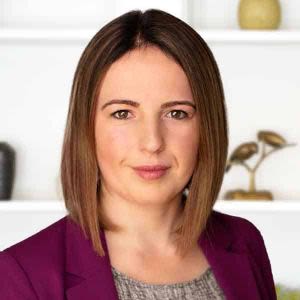
Magda Wieczorek
Psychiatric Advanced Practice Registered Nurse
MSN, APRN, PMHNP-BC

Alyssa Cumpstone
Senior Clinician
LPC

Jana Wu
Director, Cultural Integration
LCSW, LADC, CASAC-Advanced
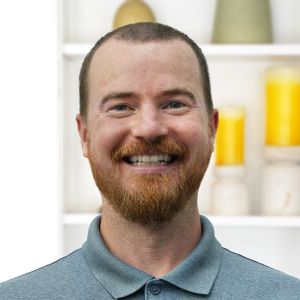
Devon Hawes
Detox Senior Clinician
CAC

Ariana Cardozo
Senior Clinician
LCSW, EMDR
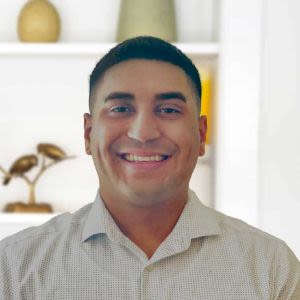
Edward Martinez
Clinician
LMSW

Frank Watkins
Senior Clinician
LPC

Michelle Feuerbach
Program Manager, Outpatient Services
LCSW
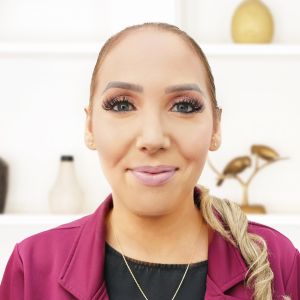
Melissa Pagan
Family Wellness Program Director
LMFT

Brittney LaBonte
Family Wellness Residential Program Manager
LPC

Jillian Zeitler
Clinician
LPC, LADC

Elizabeth Kelley
Clinician
LCSW, CADC
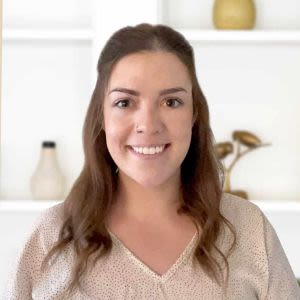
Emily Anderson
Clinician
CAC, DARC

Caitlin Barbieri
Clinician
LMSW, MSW

Jessica Barone
Clinician
CAC

Emily Moran
Clinician
LMSW

Kendall Svanda
Senior Alumni Engagement and Experience Coordinator
CAC

Devon Winn
Detox Clinician
CAC, DARC

Ricky Tyson
Recovery Support Senior Clinician
CAC, CPRS
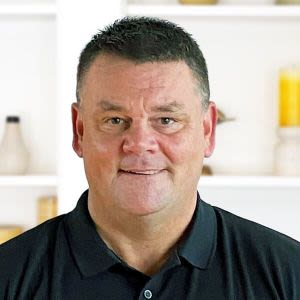
John Fleming
Recovery Support Clinician
DARC
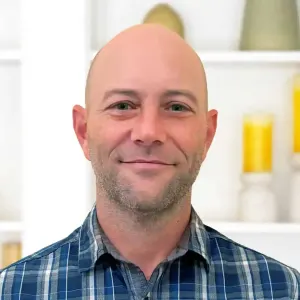
Sam Hindels
Recovery Support Clinician
LADC




Levels of Care








Your Care Options
Specializations
Recovery Coaching
A support service designed to help individuals identify and maintain their personal recovery goals, provide guidance and support, and connect them with recovery resources and community-based services.
Adolescents
Teens receive the treatment they need for mental health disorders and addiction, with the added support of educational and vocational services.
Alcohol
Using alcohol as a coping mechanism, or drinking excessively throughout the week, signals an alcohol use disorder.
Cocaine
Cocaine is a stimulant with euphoric effects. Agitation, muscle ticks, psychosis, and heart issues are common symptoms of cocaine abuse.
Heroin
Heroin is a highly addictive and illegal opioid. It can cause insomnia, collapsed veins, heart issues, and additional mental health issues.
Methamphetamine
Methamphetamine, or meth, increases energy, agitation, and paranoia. Long-term use can result in severe physical and mental health issues.
Opioids
Opioids produce pain-relief and euphoria, which can lead to addiction. This class of drugs includes prescribed medication and the illegal drug heroin.
Who We Treat
Young Adults
Emerging adults ages 18-25 receive treatment catered to the unique challenges of early adulthood, like college, risky behaviors, and vocational struggles.
LGBTQ+
Addiction and mental illnesses in the LGBTQ+ community must be treated with an affirming, safe, and relevant approach, which many centers provide.
Men and Women
Men and women attend treatment for addiction in a co-ed setting, going to therapy groups together to share experiences, struggles, and successes.
Midlife Adults
For adults ages 40+, treatment shifts to focus on the unique challenges, blocks, and risk factors of their age group, and unites peers in a similar community.
Pregnant Women
Addiction and mental health treatment meets the clinical and psychological needs of pregnant women, ensuring they receive optimal care in all areas.
Approaches
Holistic
A non-medicinal, wellness-focused approach that aims to align the mind, body, and spirit for deep and lasting healing.
Personalized Treatment
The specific needs, histories, and conditions of individual patients receive personalized, highly relevant care throughout their recovery journey.
Twelve Step
Incorporating spirituality, community, and responsibility, 12-Step philosophies prioritize the guidance of a Higher Power and a continuation of 12-Step practices.
Wellness
Wellness philosophies focus on the physical, mental, and spiritual wellness of each patient, helping them restore purpose with natural remedies.
Therapies
1-on-1 Counseling
Patient and therapist meet 1-on-1 to work through difficult emotions and behavioral challenges in a personal, private setting.
Meditation & Mindfulness
A practiced state of mind that brings patients to the present. It allows them to become fully aware of themselves, their feelings, and the present moment.
Online Therapy
Patients can connect with a therapist via videochat, messaging, email, or phone. Remote therapy makes treatment more accessible.
Mindfulness Therapy
This ancient practice can be mental, emotional, and even spiritual. In meditation, you focus your attention on the present moment without judgement.
Adventure Therapy
This experiential approach uses the physical and emotional challenges of outdoor activities as tools for personal growth.
Aromatherapy
Inhaling or topically applying essential oils can help relieve stress, soothe pains, and relieve emotional distress.
Art Therapy
Visual art invites patients to examine the emotions within their work, focusing on the process of creativity and its gentle therapeutic power.
Conditions We Treat
Anger
Although anger itself isn't a disorder, it can get out of hand. If this feeling interferes with your relationships and daily functioning, treatment can help.
Anxiety
Anxiety is a common mental health condition that can include excessive worry, panic attacks, physical tension, and increased blood pressure.
Codependency
Codependency is a pattern of emotional dependence and controlling behavior. It's most common among people with addicted loved ones.
Depression
Symptoms of depression may include fatigue, a sense of numbness, and loss of interest in activities. This condition can range from mild to severe.
Post Traumatic Stress Disorder
PTSD is a long-term mental health issue caused by a disturbing event or events. Symptoms include anxiety, dissociation, flashbacks, and intrusive thoughts.
Trauma
Some traumatic events are so disturbing that they cause long-term mental health problems. Those ongoing issues can also be referred to as "trauma."
Substances We Treat
Alcohol
Using alcohol as a coping mechanism, or drinking excessively throughout the week, signals an alcohol use disorder.
Benzodiazepines
Benzodiazepines are prescribed to treat anxiety and sleep issues. They are highly habit forming, and their abuse can cause mood changes and poor judgement.
Co-Occurring Disorders
A person with multiple mental health diagnoses, such as addiction and depression, has co-occurring disorders also called dual diagnosis.
Cocaine
Cocaine is a stimulant with euphoric effects. Agitation, muscle ticks, psychosis, and heart issues are common symptoms of cocaine abuse.
Drug Addiction
Drug addiction is the excessive and repetitive use of substances, despite harmful consequences to a person's life, health, and relationships.
Ecstasy
Ecstasy is a stimulant that causes intense euphoria and heightened awareness. Abuse of this drug can trigger depression, insomnia, and memory problems.
Heroin
Heroin is a highly addictive and illegal opioid. It can cause insomnia, collapsed veins, heart issues, and additional mental health issues.
Methamphetamine
Methamphetamine, or meth, increases energy, agitation, and paranoia. Long-term use can result in severe physical and mental health issues.
Languages
Aftercare
Care Designed for Your Needs
Personal Amenities
Amenities
Special Considerations
Executive Program
Addiction and mental health treatment for executives typically involves high discretion, greater technology access, and more private, 1-on-1 care.
Gender-specific groups
Patients in gender-specific groups gain the opportunity to discuss challenges unique to their gender in a comfortable, safe setting conducive to healing.
LGBTQ group
Group therapy unites LGBTQ+ patients in a safe and culturally competent setting, encouraging peer support under the expert leadership of a therapist.
Activities
Yoga
Yoga is both a physical and spiritual practice. It includes a flow of movement, breathing techniques, and meditation.
Off-Site Activities

What people are saying
Treatment
4.5
Accommodations
4.5
Food & Nutrition
4.3
Value
4.4
Pros
- Friendly & Competent Staff (8)
- Beautiful Location (8)
- Supportive Aftercare (6)
- Personalized (5)
Kelly P
Treatment in 2023 • (45 days) • Reviewed 11/25/25
Former Client
B. Harrison
Treatment in 2014 • (30 days) • Reviewed 02/08/26
Former Client
•Transportation / CDL Driver
•Cheshire, CT
Siobhan
Reviewed 11/17/22
Review from Rehabs.com
Mike A
Treatment in 2011 • (30 days) • Reviewed 08/11/23
Former Client
•Mechanic
•NYC
BC
Treatment in 2016 • (30 days) • Reviewed 08/11/23
Loved One of a Former Client
•Connecticut





